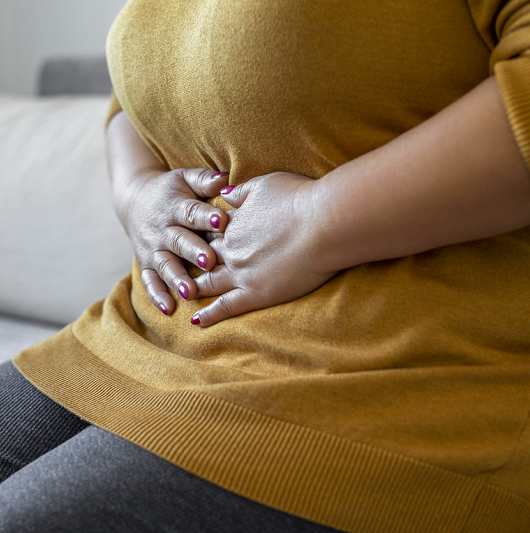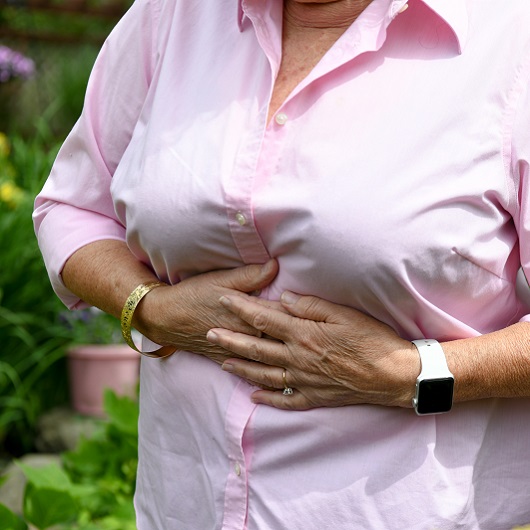Are Colon Cleanses Safe?

May 16, 2024
Many people, from social media influencers to celebrities, tout the benefits of colon cleanses. You may have heard about these “detoxifying” procedures and wonder if you should have one.
Some people claim cleanses have multiple benefits, including:
- Removal of toxins, which the colon already does on its own
- Weight loss
- Increased energy
- Boosted immune system
Our expert, Kulvir Nandra, M.D., colon and rectal surgeon at Mountainside Medical Group, separates fact from fiction when it comes to colon cleanses.
Think Before You Colon Cleanse
A colon cleanse is not the same as a colonoscopy, a visual exam to screen for colon cancer. Nor do colon cleanses prevent colon cancer.
Screening is crucial to preventing colorectal cancer. Adults ages 45 to 75 should be screened for colorectal cancer regularly. Talk to your doctor about when you should get screened and how.
For most people, Dr. Nandra says, the colon does its job just fine. “The idea of having a cleanse may seem like a good idea, but I tell any patient looking to try this or any colonic treatment to be careful,” Dr. Nandra says. “None have been tested by the U.S. Food and Drug Administration, nor have ingredients been tested or verified by any medical board.”
He adds that colon cleanses don’t appear to have any general health benefits. If a patient asks about colon cleanses, Dr. Nandra asks about issues that may be driving them to think about cleanses. “I want to rule out any digestive problem., If there is an issue, we can identify and treat it,” he says.
Types of Colon Cleanses
There are two types of colon cleanses:
- Supplements: Over-the-counter supplements like laxatives, enemas and herbal teas can stimulate your bowel to empty. Laxatives help purge your bowel before a colonoscopy, but not for health benefits. Cleansing your bowel just allows your doctor to see clearly inside it during the exam. And colonoscopy prep involves drinking lots of fluids, so you don’t get dehydrated.
- Colon hydrotherapy: Also called colonic irrigation or “a colonic,” this procedure flushes your colon with up to 16 gallons of fluid. The colon hydrotherapists who perform colonics are not board-certified doctors, physician associates/assistants, nurse practitioners or nurses.
Risks of Colon Cleanses
Dr. Nandra says there are many reasons to let your colon do its job and skip the cleanses. Some risks of colon cleanses are:
- Diarrhea
- Cramping
- Nausea and vomiting
- Dehydration
- Irregular bowel activity
- Anal discomfort and irritation
- Too few “good bacteria” in your gut
- Tear in your bowel if a colonic machine is used
- Possible infection if a colonic machine is not properly sterilized
Dr. Nandra also notes that colon cleanses can be especially risky for people with conditions like:
- Diverticulitis
- Inflammatory bowel disease, such as ulcerative colitis or Crohn’s disease
- Heart disease
- Kidney disease
- Previous colon surgeries
Keep Your Colon Healthy, Naturally
Your colon appreciates it when you take steps to help keep it healthy, Dr. Nandra says. He suggests a combination of habits for a happy colon:
- Talk to your doctor about colon cancer screening.
- Eat a balanced, colon-healthy diet with plenty of fruits, vegetables and whole grains.
- Avoid excess red meat and processed meats.
- Stay active with regular exercise.
- Watch your weight, as excess weight increases colon cancer risk.
- Don’t smoke, as smoking increases colon cancer risk.
Limit alcohol, which has been linked to higher colorectal cancer risk.
Next Steps & Resources
- Meet our source: Kulvir Nandra, M.D.
- Make an appointment with a gastroenterologist near you, or call 800-822-8905.
- Learn more about gastroenterology at Hackensack Meridian Health
The material provided through HealthU is intended to be used as general information only and should not replace the advice of your physician. Always consult your physician for individual care.






